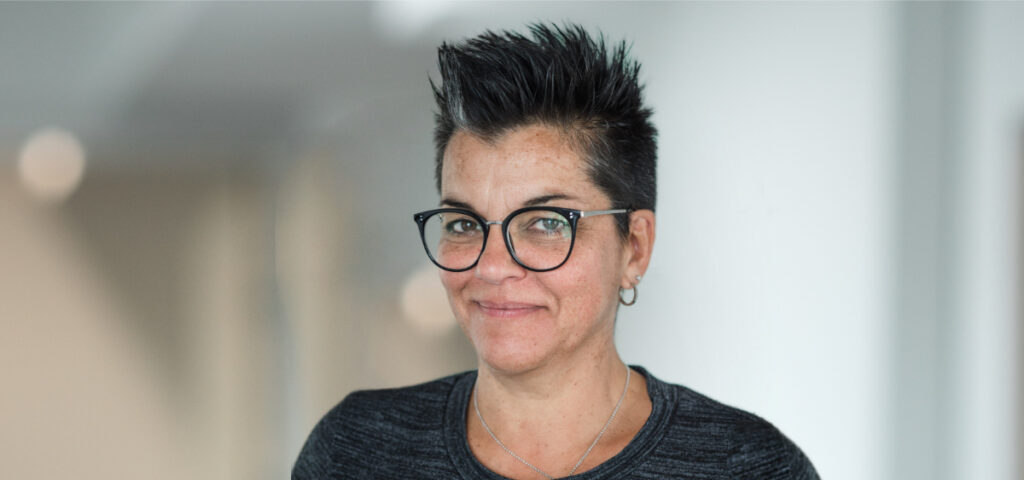Disagreements with neighbours, disputes between families, or a misunderstanding with your child’s school. Citizen mediation can help solve such problems without going to court. In this article, an expert on citizen mediation shares her views on the topic.

An accessible process
Who among us can completely avoid conflicts? Unfortunately, disputes come up in all areas of life and generally stir up negative emotions. When this happens, it’s usually best to keep your cool, discuss things and look for solutions.
Before considering going to court, mediation can help you look for enough common ground to reach an agreement. Citizen mediation is available across Quebec. It’s offered free of charge and without a time limit. You can change your mind and withdraw from the mediation process at any time.
“One of our core values is that conflicts do not always have to go to court”, explained Stéphanie Fournier, coordinator of citizen mediation at Équijustice Rive-Sud, where 40 volunteers provide mediation services.
“The community has what it needs to deal with conflicts. We don’t tell people not to go to court – it’s their choice. But we offer people an alternative, asking, ‘Would you like to take some time to discuss the situation together?’ It’s then up to each person to decide”.
Different from a trial
A civil trial is a way of settling a civil dispute. It deals with non-criminal matters, such as conflicts between neighbours or a disagreement about a refund for something bought from a store.
In such cases, a judge will decide based on the “balance of probabilities”. This means the judge must decide which of the two versions of events being presented in court is the more probable – even if some doubts persist. The solution imposed by the judgement can leave one of the parties dissatisfied.
On the other hand, if two people agree to mediation, they open the door to a possible compromise.
To increase the chances of arriving at such a compromise, mediators follow a thorough process aimed at facilitating dialogue and avoiding unpleasant surprises.
“We first meet the person individually along with two volunteers,” Ms. Fournier explained. “We hear what the person has to say about the situation, explore the steps they have taken so far, and find out what they would like to do. If they wish to continue with mediation, we contact the other person involved in the dispute to meet individually with them”.
If both people involved in the dispute wish to go ahead with mediation, there will be individual preparatory sessions for each of them. This ensures that people involved in the mediation process enter it with an open mind.
“We’ll take as long as necessary to prepare people individually to ensure that the discussion will be a safe and constructive one,” Ms. Fournier explained. “We won’t put people in a situation where we think things could go badly or degenerate”.
At Équijustice Rive-Sud, only 10% of initial inquiries lead to mediation sessions. Some people don’t want to go ahead with mediation, but some cases are resolved just through the individual meetings. When mediation sessions do take place, the mediator’s role is to facilitate discussion while remaining neutral.
“We don’t bring up the topic of an agreement”, according to Ms. Fournier. “It’s up to the two people involved to reach one. Of course, we explore different paths to a solution”.
“We often lay down certain ground rules together, but it’s done informally. The volunteers never serve as witnesses to an agreement. If someone wishes to put something in writing, it’s up to the two people involved.”
For what types of disputes?
Citizen mediation can be used in almost all types of disputes within the community. But there are some exceptions.
“We don’t handle conflicts between spouses,” Ms. Fournier explained. “When a couple separates, whether or not they have children, it’s a matter for family mediation. In addition, we don’t handle urgent situations. But aside from these situations, we’ll sit down with people and ask them what they’d like to do.”
Disputes between neighbours constitute the majority of citizen mediation cases. But, more and more, people with other types of conflicts are turning to this process.
“At first, we were known mainly for conflicts between neighbours, and those still make up most of our cases. But we see more and more different types of situations. For example, we see issues concerning grandparents and grandchildren. People want to clarify things that have happened within the family. We also have more situations with businesses, such as ‘he’s using my parking space’, or ‘they’re making too much noise’, or ‘their night-time deliveries are disturbing me’. Things like that.”
|
Good to Know Thinking about mediation but don’t know where to begin? Finding a mediator is a good place to start. Quebec has several resources to help you find one. And if you would like to learn more about good neighbourly relations, please see our quiz on the subject. |





